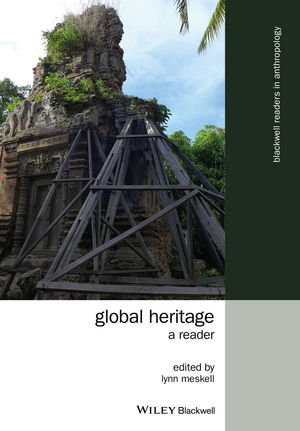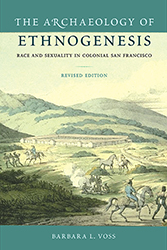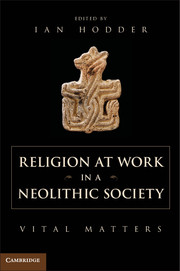Department Faculty
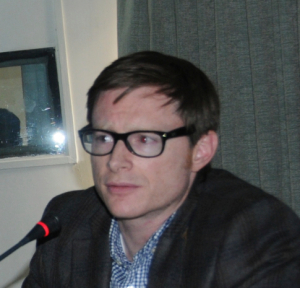 | Andrew BauerAssistant Professor, Department of Anthropology Andrew Bauer is an anthropological archaeologist whose research and teaching interests broadly focus on the archaeology of human-environment relations, including the socio-politics of land use and both symbolic and material aspects of producing cultural spaces, places, and landscapes. Andrew has previously conducted archaeological fieldwork in Turkey, Iran, and the United States but his primary research is based in South India, where he co-directs fieldwork investigating the relationships between landscape history, cultural practices, and institutionalized forms of social inequalities and difference during the region’s Iron Age, Early Historic, and Medieval periods. As an extension of his archaeological work, he is also interested in the intersections of landscape histories and modern framings of nature that relate to conservation issues and climate change. He has published a variety of articles and is the author of Before Vijayanagara: Prehistoric Landscapes and Politics in the Tungabhadra Basin (2015) and the co-editor of The Archaeology of Politics: The Materiality of Political Action and Practice in the Past (2011). InterestsEnvironmental archaeology, political ecology, materiality, space/place/landscape, South Asia Contactambauer@stanford.edu |
 | Giovanna Ceserani Associate Professor, Department of Classics Giovanna Ceserani works on the classical tradition with an emphasis on the intellectual history of classical scholarship, historiography and archaeology from the eighteenth century onwards. She is interested in the role that Hellenism and Classics played in the shaping of modernity and, in turn, in how the questions we ask of the classical past originate in specific modern cultural, social and political contexts. She is currently writing a book on the history of the modern study of Magna Graecia. Most recently she wrote articles on Wilamowitz's entanglements with archaeology and on eighteenth-century historiography of ancient Greece. She also participates as research director in the AREA project (Archives for European Archaeology http://www.area-archives.org). In Spring 2006 she was a Visiting Scholar at the Getty Research Institute in LA. Interests History of archaeology and of classics, intellectual history, ancient Greeks in South Italy Link http://www.stanford.edu/dept/classics/cgi-bin/web/people/faculty/giovanna-ceserani Contact ceserani@stanford.edu |
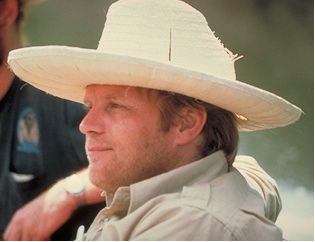 | James Fox Associate Professor, Department of Anthropology I am a linguistic anthropologist in the Department of Anthropology, with a courtesy appointment in the Department of Linguistics, specializing in historical linguistics, linguistic prehistory, and the native languages of the Americas. My research interests are focused on the history of the Mayan and Mixe-Zoquean language families, distant language relationships in the Americas and elsewhere, and the decipherment of Maya writing. I am currently working on: a dictionary and grammar of Ayapa Zoque; a treatise on Mayan historical linguistics, a translation of the Quiché mythological epic Popol Vuh and an accompanying multi-media program, a book on the inscriptions of Chichén Itzá, a decipherment project involving ancient Maya star and planetary lore, and a quantitative computer analysis of a newly-discovered sound pattern in Mayan languages. Interests Linguistic anthropology, archaeological decipherment, settlement of the New World, Mesoamerica, Americas. Contact jim.fox@stanford.edu |
 | Ian Hodder Dunlevie Family Professor in the Department of Anthropology, PhD Cambridge University He is the Dunlevie Family Professor in the Department of Anthropology, and since 2006 he has been Director of the Stanford Archaeology Center. Since 1993 he has been excavating at the 9,000 year-old Neolithic site of Çatalhöyük in central Turkey. The 25-year project has three aims - to place the art from the site in its full environmental, economic and social context, to conserve the paintings, plasters and mud walls, and to present the site to the public. The project is also associated with attempts to develop reflexive methods in archaeology. Ian Hodder teaches and writes about archaeological method and theory. Among his publications are: Symbols in Action (Cambridge 1982), Reading the Past (Cambridge 1986), The Domestication of Europe (Oxford 1990), The Archaeological Process (Oxford 1999), Çatalhöyük: The Leopard's Tale (Thames and Hudson 2006). Interests Archaeological theory, Çatalhöyük, European prehistory, material culture, long term social and cultural change. Contact ihodder@stanford.edu Links https://www.stanford.edu/dept/anthropology/cgi-bin/web/?q=node/109 |
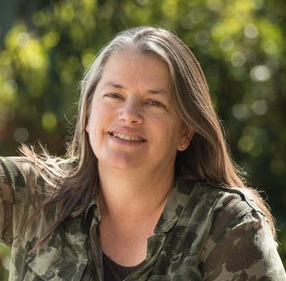 | Laura Jones Director of Heritage Services and University Archaeologist for Stanford University Dr. Laura Jones is Director of Heritage Services and University Archaeologist for Stanford University, responsible for stewardship of the University’s nearly 100 archaeological sites and 200 historic buildings. She earned her Bachelor’s degree from the University of California at San Diego in 1983 and a Master’s Degree (1985) and Doctor of Philosophy (1990) from Stanford University. Her archaeological experience includes serving as director of a number of major excavations of prehistoric occupation and cemetery sites in the San Francisco Bay Area where she works closely with the indigenous Muwekma Ohlone Tribe. Primary themes in this work include mortuary treatment and subsistence strategies among complex hunter-gatherers. She has also conducted several historical archaeology projects and is currently leading the excavation of the monumental Men’s Gymnasium ruin, a site created by the Great Earthquake of 1906. Laura Jones also has a long-term interest in education. She served as Senior Scholar and Director of Community Programs at the Carnegie Foundation for the Advancement of Teaching from 2001-2006 and is the co-author of a major study of doctoral education, The Formation of Scholars, published in 2007. Interests California, French Polynesia, cultural resource law, museum studies Contact ljones@stanford.edu |
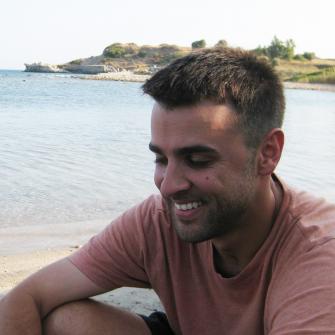 | Justin Leidwanger Assistant Professor, Department of Classics Justin Leidwanger’s research focuses on the economic networks that shaped ancient maritime commerce, particularly during the Roman era. These interests lead him to spend more time in, rather than around, the waters of the Mediterranean, where his fieldwork explores the shipwrecks and ports that provide primary archaeological evidence for the modes and mechanisms of exchange. For more than a decade, he has directed survey and excavation projects primarily off the coasts of Turkey, Italy and Cyprus. Since 2011, he has been collaborating with Middle East Technical University and Brock University to investigate the Archaic through Late Roman harbors of Burgaz on the Datça peninsula. In collaboration with the Soprintendenza del Mare, he has recently developed the Marzamemi Maritime Heritage Project, a joint initiative that combines survey and excavation with maritime heritage education and museum and tourism development at the site of several ancient shipwrecks off southeast Sicily. Interests Ancient economies, Greek and Roman ceramics, seaborne connectivity, maritime archaeology, Roman architecture, archaeological law and ethics Contact |
 | Li Liu Sir Robert Ho Tung Professor in Chinese Archaeology in Department of East Asian Languages and Cultures PhD in Anthropology from Harvard University. Li Liu is the Sir Robert Ho Tung Professor in Chinese Archaeology in Department of East Asian Languages and Cultures at Stanford University. Previously she taught archaeology at La Trobe University in Melbourne, Australia, for 14 years and was elected as Fellow of Academy of Humanities in Australia. She has a BA in History (Archaeology Major) from Northwest University in China, an MA in Anthropology from Temple University in Philadelphia, and a PhD in Anthropology from Harvard University. Interests Archaeology of early China (Neolithic and Bronze Age); ritual practice in ancient China; cultural interaction between China and other parts of the Old World; domestication of plants and animals in China; development of complex societies and state formation; settlement archaeology; urbanism. Contact liliu@stanford.edu |
 | Gail A. MahoodProfessor, Geological and Environmental Sciences InterestsResearch interests include physical volcanology, igneous Contactmahood@stanford.edu |
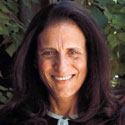 | Jody Maxmin Associate Professor, Department of Art, Art History and Classics BA Oberlin College 1971 Diploma in Classical Art & Archaeology, Oxford University 1973 D.Phil in Classical Art & Archaeology, Oxford University 1979 Interests Greek painting and sculpture, archaic Greek art, the art and culture of 5th century Athens, classical influence on later art, athletics in ancient Greece Contact jmaxmin@stanford.edu |
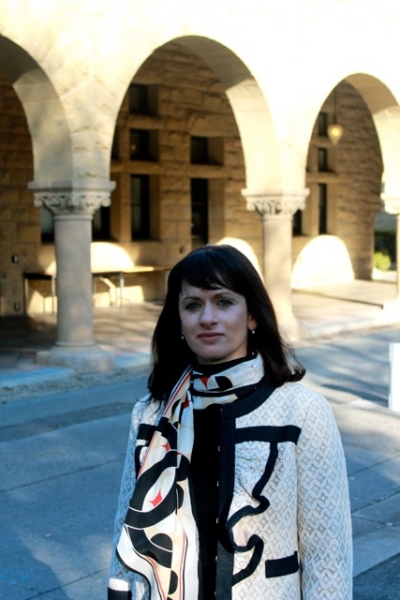 | Lynn Meskell Professor, Department of Anthropology Director, Stanford Archaeology Center Lynn's current research and teaching interests include a broad range of fields, including an institutional ethnography of UNESCO, natural and cultural heritage in South Africa, identity and sociopolitics, and international heritage ethics. Lynn views contemporary archaeology as an anthropology of the past, a contextual and nuanced engagement with ancient culture that mirrors the ethnographic project. Her previous work has examined conservation, biodiversity and cultural heritage and the related discourses of empowerment around the Kruger National Park, ten years after democracy in South Africa. Another field project is focused on the social constitution of the figurine worlds at Neolithic Çatalhöyük, Turkey. Her new research focuses on the role of UNESCO in terms of heritage rights, sovereignty and international politics. As founding editor of the Journal of Social Archaeology, Lynn has attempted to forge a vehicle for this dialogue, bringing together a wide range of scholars from diverse fields to constitute the editorial panel. Interests UNESCO, World Heritage, South Africa, critical conservation, social theory, materiality, ethics, ethnography, Çatalhöyük figurines, Egypt Contact lmeskell@stanford.edu, (650) 724-1751 488 Escondido Mall, Building 500, Room 115 |
 | Ian Morris Jean and Rebecca Willard Professor of Classics PhD Cambridge 1986 Ian Morris's current research uses ancient Mediterranean history to try to help answer the big questions in history. His latest book, Why the West Rules—For Now: The Patterns of History, and What They Reveal about the Future (Farrar, Straus and Giroux/Profile Books 2010; German, Dutch, Chinese, and Korean translations 2011), compares eastern and western history since the end of the Ice Age and asks where the long-term trends will take us in the 21st century. He is now working on a new book called War! What is it Good For? (Farrar, Straus and Giroux/Profile Books), and when that is finished, he will work on a book tentatively titled The Ancient World: A New History (Princeton University Press), examining the period 10,000 BCE–600 CE across the entire globe. He has published ten previous books, including several collaborative projects with members of the Classics department, such as The Dynamics of Ancient Empires: State Power from Assyria to Byzantium (Oxford University Press 2009, co-edited with Walter Scheidel) and The Cambridge Economic History of the Greco-Roman World (Cambridge University Press 2007, co-edited with Walter Scheidel and Richard Saller), as well as the textbook The Greeks: History, Culture, and Society (with Barry Powell; Prentice-Hall, 2nd ed., 2009). In 2008 he concluded a multi-year project directing the excavation of Monte Polizzo, a sixth-century BC indigenous Sicilian town, examining cultural interaction, state formation, and economic growth. Interests Mediterranean, Iron Age, economics, equality, colonialism, long-term history Link http://www.stanford.edu/dept/classics/cgi-bin/web/people/faculty/ian-morris Contact imorris@stanford.edu |
 | John Rick Associate Professor, Department of Anthropology PhD Michigan Interests Prehistoric archaeology and anthropology of band-level hunter-gatherers, stone tool studies, analytical methodology, animal domestication; Latin America, Southwestern U.S. Link http://www.stanford.edu/~johnrick/ Contact johnrick@stanford.edu |
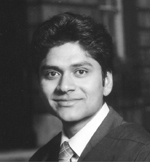 | Krish Seetah Assistant Professor, Department of Anthropology PhD in Archaeology from the University of Cambridge
I am a zooarchaeologist, whose focus is primarily on colonisation and colonialism. My zooarchaeological research has used butchery analysis (with the benefit of professional and ethnographic actualistic experience) to investigate agency within the human-animal relationship. More recently, I have employed geometric morphometrics (GMM) as a mechanism for identifying and distinguishing animal populations. This approach to studying colonial activity centres on understanding how people manipulate animal bodies, both during life and after death. Alongside the strictly faunal research is a research interest in technologies associated with animal processing. This has been used to investigate issues of technology, trade and socio-economic attitudes within colonial contexts in the Mediterranean (Venice & Montenegro) and the Baltic (Poland, Latvia & Lithuania). I am also the Director of the ‘Mauritian Archaeology and Cultural Heritage’ (MACH) project, which studies European Imperialism and colonial activity. This project centres on the movement of peoples and material cultures, specifically within the contexts of slavery and Diaspora. The work of this project has focused on key sites in Mauritius and is based on a systematic programme of excavation and environmental sampling. The underlying aims are to better understand the transition from slavery to indentured labour following abolition, the extent and diversity of trade in the region and the environmental consequences of intense, monoculture, agriculture. Interests Zooarchaeology, human-animal relationships, colonialsm, Indian Ocean World Links http://www.stanford.edu/group/mauritianachlgy/ Contact |
 | Michael ShanksProfessor of Classical Archaeology PhD Cambridge 1992 My archaeology began in the Roman borders of the north of England and Scotland, excavating Hadrian’s Wall and then the great medieval city of Newcastle-upon-Tyne. I have delved deeply into the early Greek cities in the Mediterranean, into early farming societies and their monuments in Wessex and Sweden. Archaeology is beginning to produce some fascinating new stories of early agriculture, the first cities and empires, and how much the modern world has in common with antiquity. My archaeology is a bridging field. For me, archaeologists do not ”discover the past”; they work on what remains. Archaeology is about our relationships with what is left of the past. Links http://michaelshanks.org Contact mshanks@stanford.edu |
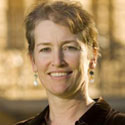 | Jennifer Trimble Associate Professor, Director of Graduate Studies PhD Michigan 1999 Jennifer Trimble works on the visual and material culture of the Roman Empire, with particular interests in portraits and replication, urbanism and the city of Rome, and ancient mapping. Her monograph Replicating Women in the Roman Empire is in press with Cambridge University Press (2011); it investigates the role of visual replication and sameness in constructing public identity and in articulating cultural tensions between empire and place. Trimble is also co-director of the IRC-Oxford-Stanford excavations in the Roman Forum (now being prepared for publication), focused on the interactions of commercial, religious and monumental space. She co-directed Stanford's Digital Forma Urbis Romae Project, a collaboration between computer scientists and archaeologists to help reassemble a fragmentary ancient map of the city of Rome. Her current book project, Mapping Rome: Representation and the City on the Severan Marble Plan, explores social and spatial relations in the city of Rome. Contact Email: trimble@stanford.edu |
 | Barbara Voss Associate Professor, Department of Anthropology My research program is centered on two primary interests: historical archaeology and sexuality studies. Within historical archaeology, my research focuses on the dynamics and outcomes of transnational cultural encounters in the Americas. This research includes ongoing investigations of the Spanish colonization of the Americas, including (since 1992) field and laboratory research at the Presidio of San Francisco. In the past decade, I have expanded this work on cultural encounters into the archaeology of overseas Chinese communities in the 19th and early 20th centuries. In this capacity I serve as Principal Investigator of the Market Street Chinatown Archaeology Project, a community-based research program developed to study and interpret the history and archaeology of San Jose's first Chinese community. The second focus of my research is sexuality studies in archaeology. I strive to generate a productive dialogue between queer studies and archaeology, and to develop rigorous methodologies that support the study of sexuality and gender through archaeological evidence. Most recently I have been exploring the relationship between queer theory and postcolonial theory in archaeology, the subject of my recent book The Archaeology of Colonialism: Intimate Encounters and Sexual Effects, co-edited with El Casella. Throughout I am guided by a deep commitment to public archaeology and collaborative research. Links to project websites:Market Street Chinatown http://marketstreet.stanford.edu Interests El Presidio de San Francisco; Market Street Chinatown Archaeology Project; historical archaeology; gender and sexuality; ceramics; architecture Contact bvoss@stanford.edu |
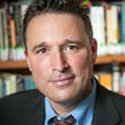 | Michael Wilcox Assistant Professor (Teaching) PhD Harvard University Michael Wilcox joined the Department of Cultural and Social Anthropology at Stanford University in 2001 as an Assistant Professor. His dissertation, entitled "The Pueblo Revolt of 1680: Communities of Resistance, Ethnic Conflict and Alliance Formation Among Upper Rio Grande Pueblos," articulates the social consequences of subordination, and explores the processes of boundary maintenance at both regional and communal levels. During his graduate studies at Harvard, he was very involved in strengthening the Harvard University Native American Program and in designing and teaching award-winning courses in Native American Studies. His recent publications include: The Pueblo Revolt and the Mythology of Conquest: An Indigenous Archaeology of Contact, University of California Press (2009) (book blog at: http://www.ucpress.edu/blog/?p=5000); Marketing Conquest and the Vanishing Indian: An Indigenous Response to Jared Diamond’s Guns, Germs, and Steel and Collapse; Journal of Social Archaeology, Vol. 10, No. 1, 92-117 (2010); Saving Indigenous Peoples From Ourselves: Separate but Equal Archaeology is Not Scientific Archaeology", American Antiquity 75(2), 2010; NAGPRA and Indigenous Peoples: The Social Context, Controversies and the Transformation of American Archaeology, in Voices in American Archaeology: 75th Anniversary Volume of the Society for American Archaeology, edited by Wendy Ashmore, Dorothy Lippert, and Barbara J. Mills (2010). Interests postcolonial archaeology, ethnic identity and conflict, Native American archaeology, ethics Contact mwilcox@stanford.edu |

